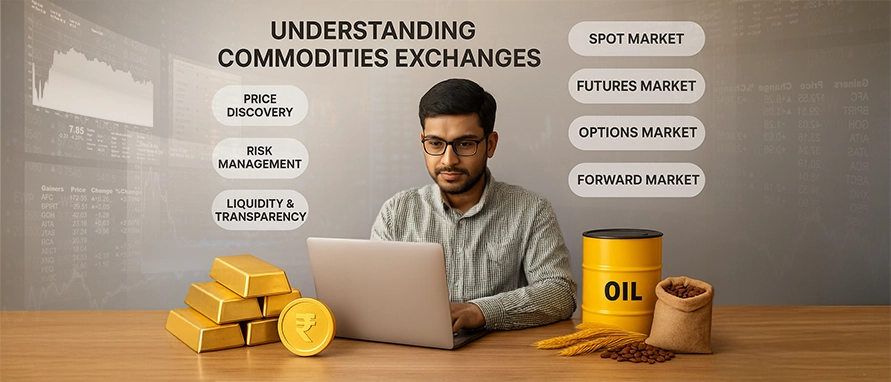Price Discovery
Commodities exchanges help determine fair market prices through the interaction of supply and demand. Real-time trading activity reflects the collective market sentiment.
Hedging Platform
Producers, traders, and manufacturers use the exchange to hedge against price volatility. For instance, a farmer may lock in a future selling price for wheat through a futures contract.
Liquidity Provision
Exchanges offer high trading volume, ensuring participants can enter and exit positions with ease.
Standardisation
Contracts are standardised in terms of quantity, quality, and delivery, promoting trust and consistency.
Transparency and Regulation
Commodities exchanges are regulated bodies. In India, the Securities and Exchange Board of India (SEBI) oversees their functioning to protect investor interests and ensure market integrity.



.jpeg)












